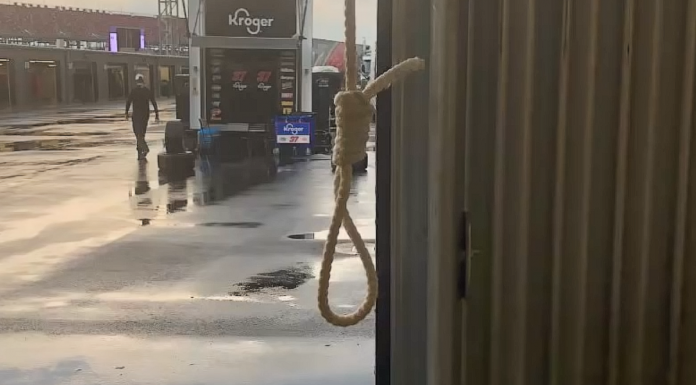(Headline USA) After becoming the first state to legalize hard narcotics last year, Oregon looked to reverse its libertarian streak with a blow to the First Amendment, becoming the latest on a list of mostly blue states to ban the display nooses.
The move followed an episode last month in which a noose was placed on the recycling container of a mixed-race couple in Eugene, Oregon, and their car was spray-painted with a racial epithet, said Greg Evans, a member of the Eugene City Council.
He testified before the state legislature on Tuesday as one of several activists who supported the ban.
The bill under consideration in Oregon would make intimidation by display of a noose a misdemeanor punishable by up to a year in prison and a $6,250 fine.
Federal hate crime laws do not address nooses. Amendments were introduced in Congress years ago to specifically include them as an intimidation threat, but nothing has been passed.
However, Louisiana, Virginia, California, New York, Maryland and Connecticut previously criminalized the display of nooses.
In Virginia, displaying a noose in public places is now a felony, with a maximum prison term of five years.
The state Supreme Court, ruling in the case of a man who hung a life-sized, black mannequin in his front yard, said in 2018 that the law also applies to private property.
Many used the display of a full gallows during the Jan. 6 uprising at the US Capitol as justification for labeling the pro-Trump protest as “domestic terrorism” and claiming that it was linked to “white supremacy.” However, there is no evidence that it was racially motivated.
Evans, who is black, said he believes most people who place nooses are fully aware of the pain it causes due to is long association with lynchings in Southern states during the Jim Crow era.
“Some are just kids that are ignorant, that are playing a joke,” Evans said. “But it’s not a joke. It’s not a prank. This is serious business.”
He said a member of his family had been lynched over a century ago in South Carolina.
“He was killed basically for offending a white man,” Evans, testified Tuesday. “He was hung by a noose. His body was riddled with bullets, and then he was set on fire.”
In spite of the horrific past, though, some free-speech advocates contend that criminalizing symbols associated with hate speech takes the country down a slippery slope due to the subjective and circumstantial nature of the so-called crime.
Among the first wave of the recent cancel-culture movement was a hoax incident involving a supposed noose hanging from the garage of NASCAR driver Bubba Wallace, who is black.
An FBI investigation proved it later to be just a rope knotted into a loop, which was used to pull down the garage door.
Other cases have also proven to be hoaxes, many of them occurring on places such as college campuses where the free flow of ideas once reined supreme.
A recent study, reported in the wake of the Jussie Smollett hate-crime hoax found that one in three of such reported incidence turned out to be false, whether intentional or unintentional.
“This phenomenon of fake hate crimes did not appear to be small-scale or regionally based,” wrote Wilfred Reilly, a political science professor at Kentucky State University and author of the book Hate Crime Hoax.
But the trend is likely to get worse as leftist groups follow Oregon’s model by implementing radical policies to suppress free expression under the guise of eradicating “hate speech.”
Evans said the noose is a symbol of white supremacy that conveys the message: “The white man is still in charge, and remember your place in this society.”
Another witness at the hearing Tuesday for the Oregon bill described the effect of the placement of a noose last May at a Portland State University construction site.
“It was shocking and terrorizing for our community. Staff and faculty were not only afraid to go to our new building but were afraid to attend PSU in general,” faculty member Kelly Cutler told the Oregon Senate Committee on Judiciary.
Portland Mayor Ted Wheeler and city commissioners urged the committee to support the bill, saying it “opens the door for legal remedies” against intimidating people with nooses in Oregon, where records show hate crimes and bias incidents increased 366% in 2020.
“The harm to communities impacted by the display of a noose should not be understated,” the city leaders wrote.
A Republican on the judiciary committee, Sen. Dallas Heard, who is white, asked how the state would enforce an anti-noose law if Antifa protesters came to the Oregon State Capitol and hanged his effigy, under a First Amendment right to protest.
The committee chairman suggested Heard speak to legislative counsel to get clarity.
Adapted from reporting by the Associated Press

